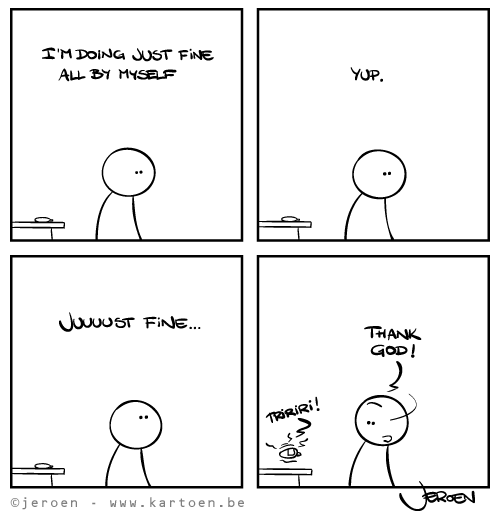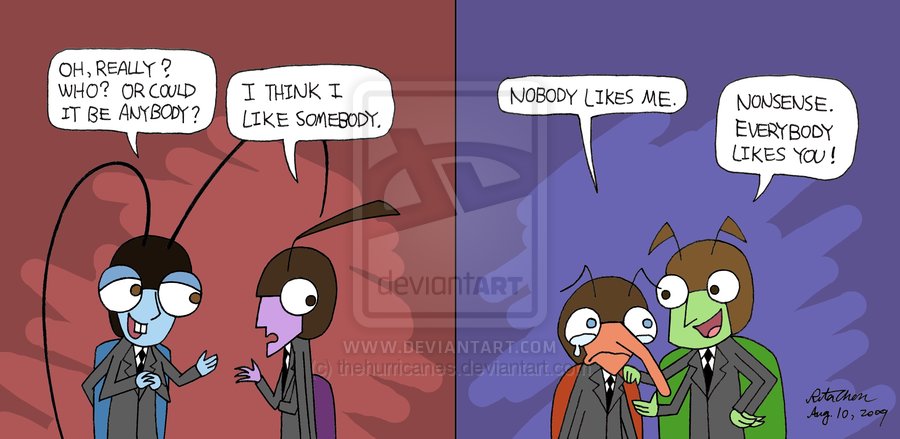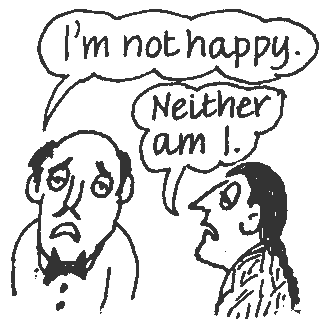-
Diposting oleh Yantia Hariesta Purnomo 0 komentar | Kirimkan Ini lewat Email BlogThis! Bagikan ke X Berbagi ke Facebook |

-
DEFINITION REPORT TEXT :Report is a text which presents information about something, as it is.It is as a result of systematic observation and analysis.PURPOSE OF SOCIAL :It’s social purpose is presenting information about something. They generally describe an entire class of things, whether natural or made :: mammals, the planets, rocks, plants, countries of region, culture, transportation, and so on.
Diposting oleh Yantia Hariesta Purnomo 0 komentar | Kirimkan Ini lewat Email BlogThis! Bagikan ke X Berbagi ke Facebook |

-
DEFINITION
An adjective clause is simply a group of words with a subject and a verb that provide a description. The clause starts with a pronoun such as who, whom, that, or which or an adverb such as when, where and why.
An adjective clause is a dependent clause that modifies a noun. It is possible to combine the following two sentences to form one sentence containing an adjective clause:
Diposting oleh Yantia Hariesta Purnomo 0 komentar | Kirimkan Ini lewat Email BlogThis! Bagikan ke X Berbagi ke Facebook |

-
Gerunds (-ing)A gerund phrase will begin with a gerund, an ing word, and will include other modifiers and/or objects. Gerund phrases always function as nouns, so they will be subjects, subject complements, or objects in the sentence. When a verb ends in -ing, it may be a gerund or a present participle. It is important to understand that they are not the same.When we use a verb in -ing form more like a noun, it is usually a gerund:- Fishing is fun.
When we use a verb in -ing form more like a verb or an adjective, it is usually a present participle:- Anthony is fishing.
- I have a boring teacher.
Diposting oleh Yantia Hariesta Purnomo 0 komentar | Kirimkan Ini lewat Email BlogThis! Bagikan ke X Berbagi ke Facebook |

-
Angel: I think you'd better return the wallet to its owner.Demon: I would not do that, if I were you.Man: What I suppose to do?!
Diposting oleh Yantia Hariesta Purnomo 0 komentar | Kirimkan Ini lewat Email BlogThis! Bagikan ke X Berbagi ke Facebook |

-
ANALYTICAL EXPOSITION
DEFINITIONS OF ANALYTICAL EXPOSITION :
Analytical Exposition is a type of text that belongs to the type of Argumentation Text where the text contains detailed author's thinking about a phenomenon that is around. The social function of the Analytical Exposition text is to convince the reader that the topic is presented is an important topic for discussion or attention by way of arguments or the opinions that support the idea or topic.
Diposting oleh Yantia Hariesta Purnomo 0 komentar | Kirimkan Ini lewat Email BlogThis! Bagikan ke X Berbagi ke Facebook |

-
Diposting oleh Yantia Hariesta Purnomo 0 komentar | Kirimkan Ini lewat Email BlogThis! Bagikan ke X Berbagi ke Facebook |

-
Definition:Transitions words are certain words, expressions, or other devices that give text or speech greater cohesion by making it more explicit, or signaling, how ideas are meant by the writer or speaker to relate to one another. These are words and phrases that serve as bridges from one idea to the next, one sentence to the next, or one paragraph to the next. They keep the reader from having to find his or her own way and possibly getting lost in the reading.
Diposting oleh Yantia Hariesta Purnomo 0 komentar | Kirimkan Ini lewat Email BlogThis! Bagikan ke X Berbagi ke Facebook |

-
HORTATORY EXPOSITION
Definition :
Hortatory exposition is a type of spoken or written text that is intended to persuade the listeners or readers that something should or should not happen or be done.
Hortatory is similar to analytical exposition but if we have to differentiate both from one to each other, we have one useful tool by making analysis on the generic structure.What makes hortatory different from analytical exposition is the last finalizing step which analytical exposition is ended by a reiteration while hortatory is finalized by certain a recommendation.
Diposting oleh Yantia Hariesta Purnomo 0 komentar | Kirimkan Ini lewat Email BlogThis! Bagikan ke X Berbagi ke Facebook |

-
Noun Clauses
A noun clause has a subject and verb and functions as a noun. A noun clause is a dependent clause or subordinate clause and is not a complete sentence. It must be connected to an independent clause. Noun clauses usually begin with how, that, what, whatever, when, where, which, who, whoever, or why.
Noun clauses perform eight main grammatical functions within sentences in the English language. Both native speakers and ESL students must learn the eight functions to fully and correctly use noun clauses in spoken and written English.
Diposting oleh Yantia Hariesta Purnomo 0 komentar | Kirimkan Ini lewat Email BlogThis! Bagikan ke X Berbagi ke Facebook |

-
Diposting oleh Yantia Hariesta Purnomo 0 komentar | Kirimkan Ini lewat Email BlogThis! Bagikan ke X Berbagi ke Facebook |

-
Diposting oleh Yantia Hariesta Purnomo 0 komentar | Kirimkan Ini lewat Email BlogThis! Bagikan ke X Berbagi ke Facebook |

-
Diposting oleh Yantia Hariesta Purnomo 0 komentar | Kirimkan Ini lewat Email BlogThis! Bagikan ke X Berbagi ke Facebook |

-
"O-o, get your hot chocolate and your old blanket, in some states the temperature would be very cold. Make sure you have heater in your house and enough food so you don't have to go outside."
Diposting oleh Yantia Hariesta Purnomo 0 komentar | Kirimkan Ini lewat Email BlogThis! Bagikan ke X Berbagi ke Facebook |

-
Diposting oleh Yantia Hariesta Purnomo 0 komentar | Kirimkan Ini lewat Email BlogThis! Bagikan ke X Berbagi ke Facebook |

-
Diposting oleh Yantia Hariesta Purnomo 0 komentar | Kirimkan Ini lewat Email BlogThis! Bagikan ke X Berbagi ke Facebook |

-
Diposting oleh Yantia Hariesta Purnomo 0 komentar | Kirimkan Ini lewat Email BlogThis! Bagikan ke X Berbagi ke Facebook |

Rss Feed
skip to main |
skip to sidebar


Super Junior's SUPER SHOW in Singapore 2012
It is not in the stars to hold our destiny but in ourselves - William Shakespeare
Search
About
Contain English materials for grade X and grade XI.
Dedicated to all people who wants to learn english.
About Me

- Yantia Hariesta Purnomo
- Palangka Raya, Central Borneo, Indonesia
- simply call me Tia. Cats-lovers and bugs-haters. XENOS (X-5 Nation) and SPIDER (Special Kids from Science Four) are the ultimate class. HASTALA VICTORIA SIEMPRE FOR SMADA
Me

Super Junior's SUPER SHOW in Singapore 2012
Blogroll
- Asking about Information
- Asking if Someone Remember or Not
- Descriptive Text
- Direct and Indirect Speech
- Finite Verbs
- Gratitude, Compliment, and Congratulation
- Introductory it
- Invitation (Written )
- Modals in Pat Form
- Narrative Text
- News Item
- Noun Phrases
- Offering
- Passive Voice
- Preposition in, on, at
- Simple Future
- Surprises and Disbelieves
- Vocabulary Around The House
Blog Archive
-
▼
2012
(55)
-
▼
Desember
(17)
- Asking for and Giving Opinion
- Report Text
- Adjective Clause
- Gerunds, Present and Participle as Adjective
- Giving Advice
- Analytical Exposition
- Expressing of Satisfaction and Dissatisfaction
- Transition
- Hortatory Exposition
- Noun Clauses
- Public Service Announcement and Poster
- Warning
- Expressing Relieve and Pain
- Weather Reports and Table/Graph
- Definite and Indefinite Pronoun
- So, Too, Either, and Neither
- Granting Request
-
▼
Desember
(17)
XENOS 'X5' Squad
My Blog List
My Blog List
Total Tayangan Halaman
Blogroll
Blogger templates
Blogger news
Snag a button
Diberdayakan oleh Blogger.
Popular Posts
-
Look at the picture! we can see that the couch were GIVING INSTRUCTION to the team. Now, read the materials so you can give instruction pr...
-
If we want to do something or make something, there's steps which we have to follow. Just like these picture. If we want to tie a tie we...
-
Definition Recount text is a text that used to re-tell event for the purpose informing or entertaining. The Generic structure: Orien...
-
These picture tell us about Legend story: Sangkuriang and Tangkuban Perahu. Legend story is include into narrative text. what is narrative...
-
This is my house! Just kidding =D Well, there are so many stuff in my house, such as lamp, bed, refrigerator, etc. Now, let's learn V...
-
Definition A preposition is a word or groups of words used before a noun or a pronoun to show place, position, time or method. The preposi...
-
Definition Passive voice is used when the focus is on the action. It is not important or not known, however, who or what is performing t...
-
What do you think about this picture? In their Tea Time, maybe they talk about our material today: Gratitude, Compliment, and Congratulation...
Followers
© English Primbon - Designed by Nudge, Blogger templates by Blog and Web.















